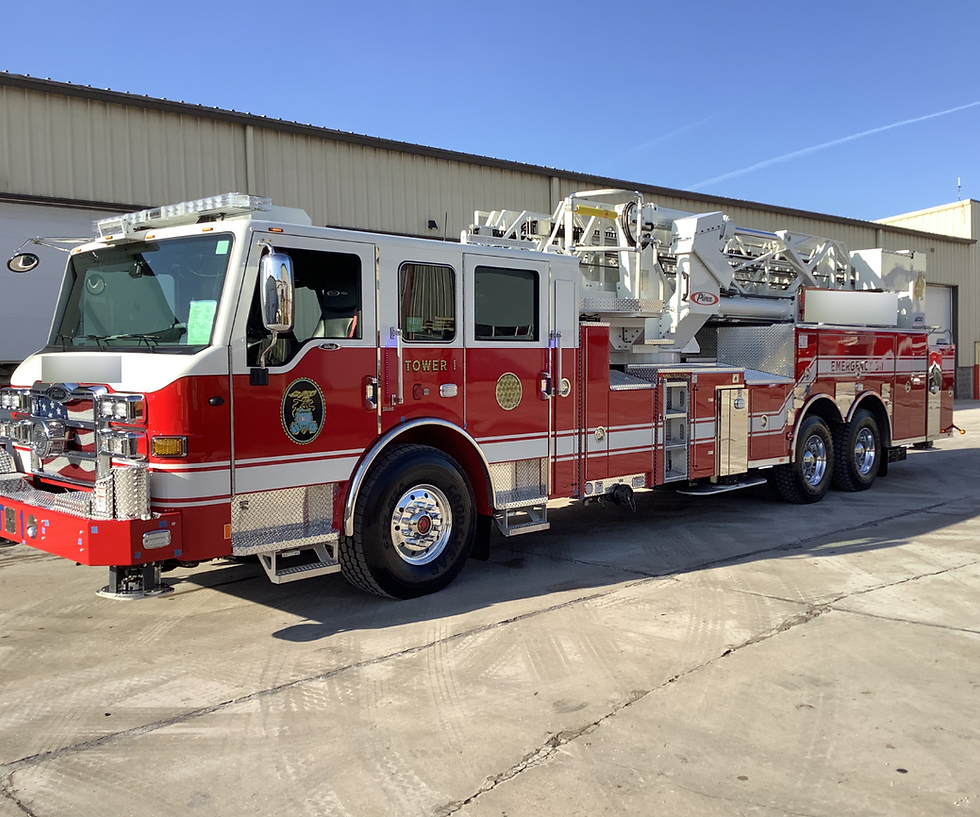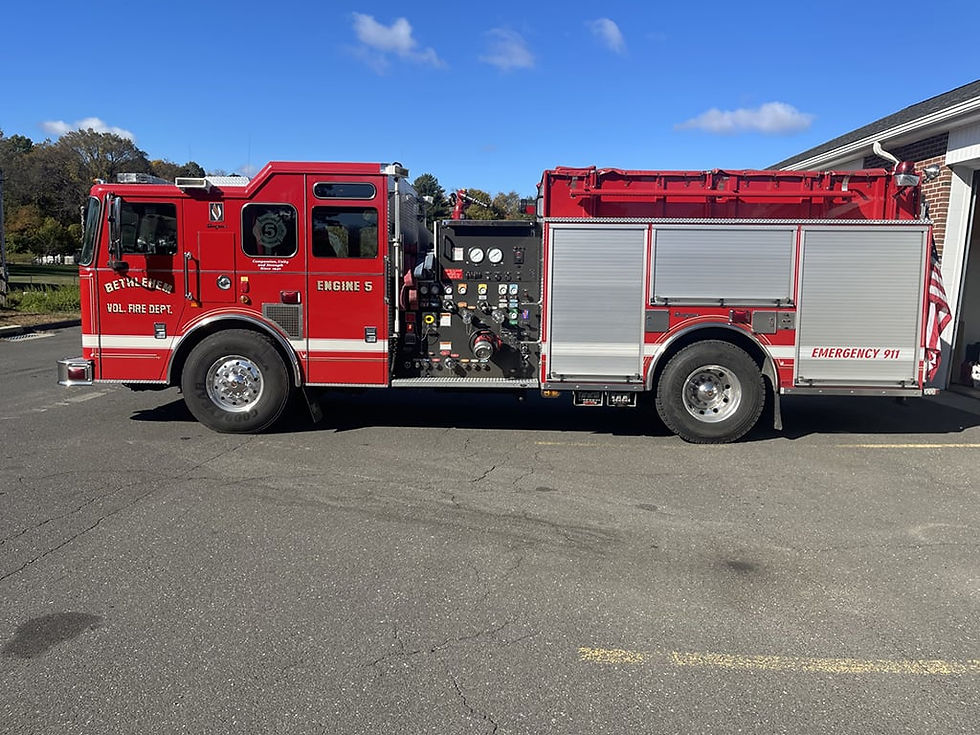Is Your Fire Apparatus Underinsured? Why Replacement Cost Matters More Than Purchase Price
- Scott Poulton

- Aug 12, 2025
- 3 min read
Updated: Nov 26, 2025
In today’s rapidly evolving emergency services landscape, one critical oversight continues to put departments at financial risk: underinsuring fire apparatus.
Whether it’s an engine, ladder truck, rescue unit, or tanker, many agencies are still insuring their vehicles based on purchase price rather than current replacement cost — a potentially devastating mistake in the event of a total loss.
Fire apparatus are specialized, high-value vehicles that don’t depreciate like standard consumer vehicles. In fact, with rising material and labor costs, longer lead times, and limited manufacturers, the cost to replace an apparatus today often exceeds its original purchase price — sometimes significantly. Yet too often, insurance coverage doesn’t reflect this reality.
The Problem with Insuring Based on Purchase Price
Let’s say your department purchased a custom pumper in 2017 for $650,000. You insured it for that amount and haven’t updated the policy since. Fast forward to 2025: supply chain issues, inflation, and evolving safety standards have driven the cost of a comparable new unit to $850,000 or more. If that truck is totaled in an accident or lost in a fire, your insurance payout will only cover the original insured value — leaving your department with a serious budget gap.
Underinsurance can lead to delayed service delivery, unsafe improvisation, or even the cancellation of mutual aid agreements if your department can’t meet its obligations. The bottom line? Your community ends up at greater risk, and your department may face financial strain for years.
Why Replacement Cost Coverage Is Essential
Replacement cost coverage ensures that, in the event of a total loss, your department can replace the apparatus with one of like kind and quality — at today’s prices. It’s the difference between getting back on the road in months or being stuck in a financial quagmire.

Unfortunately, many insurance carriers default to actual cash value (ACV), which factors in depreciation. For fire apparatus, this can be grossly misleading. Even with regular use, a well-maintained engine or ladder truck retains operational value far beyond what ACV would suggest.
What Departments Can Do Now
Review your policies annually. Don’t let your coverage sit stagnant. Conduct regular reviews to ensure values are keeping pace with market conditions.
Work with a broker who understands fire services. Not all insurers grasp the complexities and true costs of replacing fire apparatus. Partner with a provider who specializes in emergency services.
Request replacement cost appraisals. Get updated valuations from the manufacturer or a certified apparatus appraiser to determine accurate replacement costs.
Plan for inflation and supply chain delays. If it took 12 months to get a truck in 2018, it may take 18–24 months today — at a higher cost. Factor this into your risk management plan.
Fire apparatus aren’t just vehicles — they’re lifelines. Underinsuring them puts both your responders and your community at risk. Shifting from a purchase-price mindset to a replacement-cost strategy is a critical step toward financial resilience and operational readiness. Don’t wait until a loss forces the conversation. Act now — review, reevaluate, and insure smartly.
Deciding which fire apparatus insurance strategy is right for your departments budget, timeline and resources can be complicated, and mistakes can be costly- both in wasted time, and in wasted dollars.
Let our decades of experience save you time and money.
Contact Fire Apparatus Consultants today.
RAY SAJDAK is a lieutenant (ret.) with the Bristol (CT) Fire Department, where he served on its apparatus replacement committee. His career in the fire service also includes 20 years as the chairman of the apparatus committee for the Portland (CT) Volunteer Fire Department. He is a managing partner with Fire Apparatus Consultants, LLC.
SCOTT POULTON is a firefighter and apparatus operator for the Bristol (CT) Fire Department, where he serves on the department’s apparatus replacement committee. His career in the fire service also includes 37 years as a volunteer firefighter with the Terryville (CT) Volunteer Fire Department, where he cochairs the department’s apparatus replacement committee. He is a managing partner with Fire Apparatus Consultants, LLC.





.png)